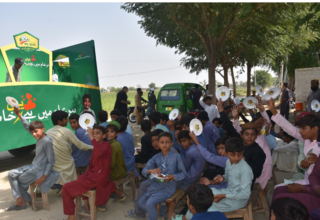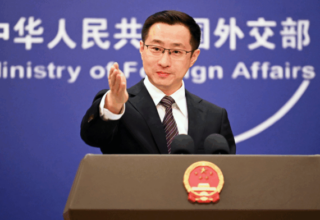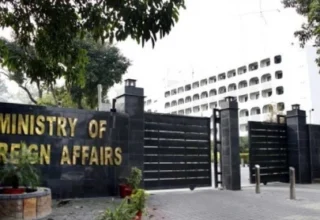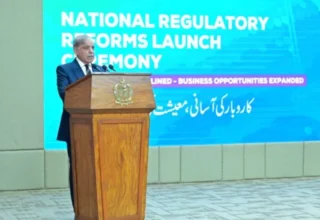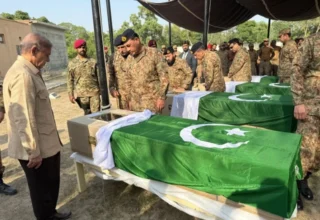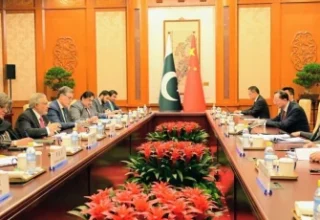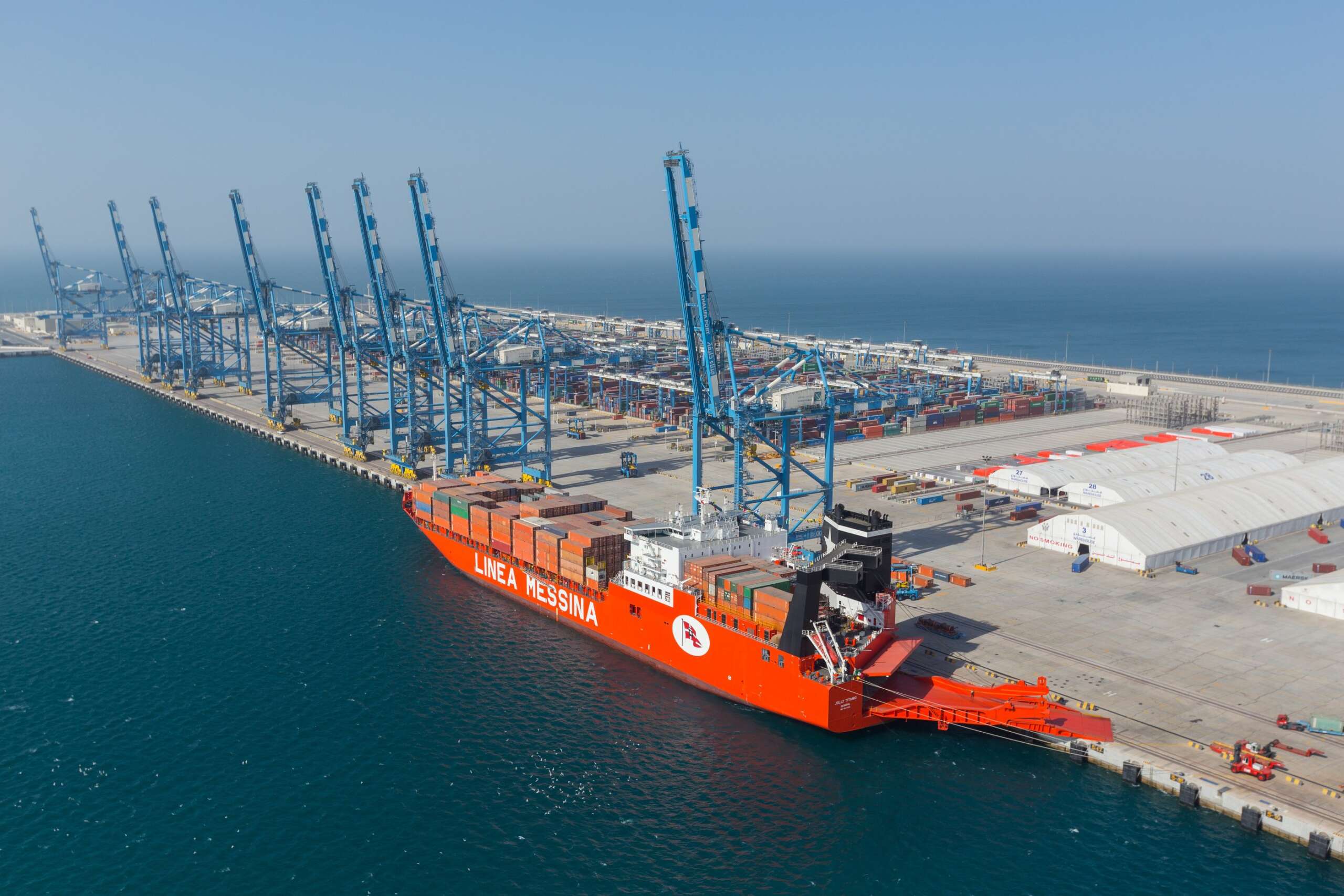
- Governor Balochistan visits Xinjiang along with Dr Malik Baloch, tribal elders from Marri, other tribes
- Delegation calls on Song Tao, Minister IDCPC; assure full cooperation on CPEC projects
BEIJING, China – In a major breakthrough, leaders of top Baloch tribes traditionally thought to be opposed to China-Pakistan Economic Corridor (CPEC) have vowed to fully support the CPEC and promised to provide security to the Chinese nationals working in across Balochistan.
The leaders of different tribes of Balochistan also downplayed negative western propaganda vis-a-vis China’s investment made under China Pakistan Economic Corridor (CPEC) and vowed to support the initiatives of CPEC and Belt and Road.

The Pakistani delegation is being led by the governor Balochistan including former Chief Minister Balochistan Dr. Abdul Malik Baloch, Central Joint Secretary of Pakistan Tehreek Insaf (PTI) Bayazeed Kasi, Balochistan Minister for Sports and Culture Abdul Khaliq Hazara, Member of Provisional Assembly (MP) Sanaullah Baloch, eminent tribal leaders Abdul Kasi, Nasir Zaman Khan, Senator Muhammad Daud, Mir Liaqat Ali, Mir Mehroze Marri, Mohammad Humayun Barakzai, Faisal Hayat Khan, Chairperson of Balochistan Institute of Research and Development (BIRD) Ms Javeria Tareen and political leaders, businessmen, and think tanks. The delegation has visited Urumqi, Kashgar, and Beijing during their stay here.
It merits mention that western media has been projecting Balochistan’s nationalist tribes and groups including Marri, Bugti and National Party led by Dr Abdul Malik Baloch as critics of the CPEC. Their support to CPEC is a major development.
Governor of Balochistan, Amanullah Khan Yasinzai, along with other representatives of local tribes also inaugurated the Silk Road Community Building on Friday here in Xinjiang, China. The Silk Road Community Building Initiative was launched at a thematic forum of people-to-people connectivity of the Second Belt and Road Forum for International Cooperation in Beijing on April 25.
The delegation called on Mr Song Tao, head of the International Department of the Communist Party of China Central Committee, during his meeting with the delegation, said that the people to people connectivity was themed as “Working together for better lives: people-to-people connectivity and cooperation”.
“The thematic forum is aimed at building consensus and reviving the Silk Road spirit to create a brighter tomorrow. Since the First Belt and Road Forum held in 2017, there have been extensive and meaningful exchanges and cooperation between China and other Belt and Road partner countries involving people from all walks of life,” he added.
“People-to-people connectivity is the important content of the BRI, and it is also the spirit, base and goal of the BRI,” Song said, calling for working together for cultural win-win cooperation, openness, inclusiveness and innovation and for more cooperation, not only between governments, but also social organizations.
DiploMag had a special sitting with the delegation here in Beijing. Balochistan Governor Amanullah Khan Yasinzai said the Silk Road community building initiative between Balochistan, Pakistan and Xinjiang, China will help boost the CPEC.
“CPEC enters in second phase which is based on social development, capacity building and welfare projects. Balochistan and Xinjiang are sister provinces as both fall in geo-strategic and ethnic location,” he said.
He said Gawadar is a China’s billion-dollar gateway to subcontinent. “We need to learn from Chinese development model of Xinjiang to speed up development in Balochistan. We also need China’s cooperation in education, agriculture and women development sectors,” he added.
He stressed for the need to start exchange programs for Balochistan tribe leaders and political leaders to learn from Chinese models.
“There is a need to promote university-to-university cooperation between the two countries as it would help build a knowledge-based society in Pakistan’s largest province of Balochistan and the establishment of vocational training institutes in Quetta and Gwadar which would help impart modern skills and training on the local youth,” he mentioned.
Bayazeed Kasi said that PTI government was pursuing Prime Minister Imran Khan’s vision of boosting mutual cooperation in fields of agriculture, education and health between the two all weather friends.
“We are learning from China how to alleviate poverty as China has pulled 800 million people out of poverty. This poverty alleviation model would largely help Pakistan build a community of shared destiny working closely with the vision of Chinese visionary President Xi Jinping,” he added.
Bayazeed Kasi said CPEC has emerged as an opportunity for the people of Balochistan who have faced terrorism and negligence. He said our prestigious arm forces have overcome all security issues and crushed almost all terrorist. He said the CPEC has opened for world to investment in Pakistan.
“We need scholarships for Balochistan students and to construct vocational training institutes for youth,” he added.
Mir Mehroze Marri said he was happy to observe the development model of China. “We are looking for such projects in our Balochistan on poverty alleviation. We need technology transfer in hospitals and educational sectors. Balochistan is neglected in past but now CPEC has made our province very important. Gawadar is important for both our countries on mutual understanding. We should promote Pakistan and CPEC for better future of our generation,” he asserted.
Member of PEMRA Mohammad Humayun Barakzai said Pakistan and China need to promote people to people connectivity to help remove misunderstandings.
“China is the only our sincere friend Pakistan has today and we will counter all propaganda against the CPEC. We need to construct new railway lines in Balochistan to promote local industries export products to world. We need cooperation in media sector to ensure encounter of all negative propaganda of western media against CPEC,” he added.
Mir Liaqat Marri stressed the need for promotion of people-to-people contacts between Pakistan and China. “We will support CPEC projects with our lives, with our tribes,” he said, adding that the fruits of CPEC should also trickle down to the ignored people of Balochistan as well.
Senator Daud Khan said that the delegates had visited three cities of China and learnt from Chinese development model.
“We need Xinjiang development model to develop Balochistan. We ensure full proof security for all Chinese companies. Our all political and tribal leaders of Balochistan supporting CPEC,” he added.
Faisa Hayat was of the view that the Pakistan and China need to develop closer institutional collaboration so as the two friendly states could build closer cooperation irrespective of the change in leadership at various levels. He said the military-to-military ties between the two countries were exceptional and there was a need to also promote people-to-people contacts.
Javeria Tareen stressed the need for establishment of more skill building and vocational training centers in Balochistan to train local youth and create opportunities for them. “We need to focus on women’s development projects and give more opportunities under people to people exchange programs,” she concluded.

